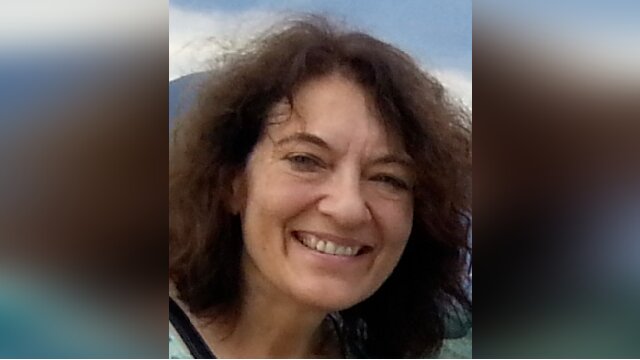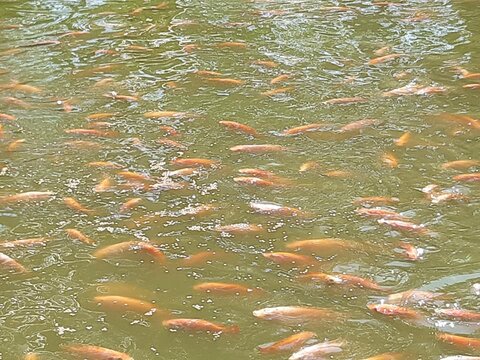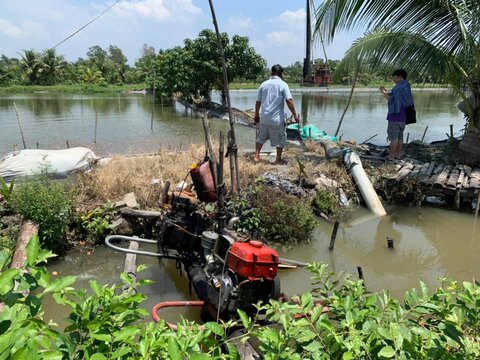BactiVac and IVVN workshop on vaccines for tilapia
Dr Ngô Huỳnh Phương Thảo, Biotechnology Center of Ho Chi Minh city, Vietnam, Dr Rowena Hoare, University of Stirling, UK, and Dr Kim Thompson, Moredun Research Institute, UK, hosted a workshop on vaccines for tilapia at Biotechnology Center of Ho Chi Minh City on 23rd-25th September 2019.
This three day workshop was held as part of the BactiVac catalyst project 'Optimisation of novel mucosal vaccines to prevent bacterial diseases of Tilapia (Oreochromis niloticus)' led by Dr Rowena Hoare. Other partners who attended included Prof Sandra Adams and Mr William Leigh from the University of Stirling, UK.
Tilapia is one the most important species farmed in low and middle income countries (LMIC). Vietnam (a LMIC) and Thailand are important contributors to tilapia production in South East Asia, with tilapia aquaculture currently expanding in both countries. The majority of diseases in tilapia are bacterial, with treatment by antibiotics common. Although tilapia is a well-established cultured species globally, there are few effective commercial vaccines available or used in this species. The majority of fish vaccines are multivalent oil-adjuvanted and given by injection. While they provide good protection against bacterial and viral pathogens, they have some drawbacks such as side effects and can only be delivered by injection. Mucosal vaccination of fish- by immersion and oral (in-feed) routes- has many benefits over injection: cost of application, mass vaccination of juveniles, less handling stress leads to less side effects and infections. At present, a limited number of mucosal vaccines are available for fish, primarily due to them being less effective than injection vaccines with shorter duration of immunity. The benefits of application of vaccine to fish by immersion or oral routes are numerous; ease of application being the foremost especially in less developed countries where expensive vaccination machines are not feasible for farmers. Many fish farmers in LMIC countries would benefit from immersion and oral vaccines that can protect their stocks for the duration of production. Development and optimisation of mucosal vaccines is essential to provide protection of aquaculture species worldwide and contribute to reducing the use of antibiotics and thereby antibiotic resistance. Through the collaboration of scientists from the UK, Thailand and Vietnam, we are modifying an existing monovalent vaccine for a bacterial disease of tilapia, Francisella noatunensis subsp. orientalis (Fno), as a proof of concept to demonstrate the benefits of mucosal vaccination in our BactiVac Catalyst project. The technology has the potential to be expanded to encompass other bacterial pathogens of fish in future polyvalent vaccines.














